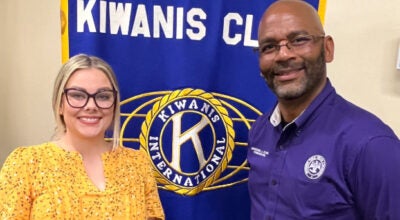Attorney lobbies supervisors to join opioid suit
Published 9:56 pm Saturday, February 3, 2018
An attorney who represents the Mississippi Supervisors Association and the Mississippi Sheriff’s Association met with the Warren County Board of Supervisors Monday to discuss the local supervisors joining with 18 other counties in the state in a lawsuit against distributors of opioids.
Will Allen, a Brookhaven lawyer, told the supervisors this is an opportunity to recoup costs associated with the impact of the opioid epidemic.
“We’ve got an epidemic and what we’re trying to do is slow down the epidemic and help counties recover from the expenses they incur,” Allen said.
Many of the expenses deal with law enforcement, mental health and community hospitals.
The U.S. Centers of Diseases Control and Prevention says 42,000 people died of overdoses in 2016 from opioids, a class of drug that includes powerful prescription painkillers such as OxyContin and Vicodin; illegal heroin; and fentanyl, a strong synthetic drug sold both through prescriptions and on the street.
Allen said 85 percent of all the opioids in the United States go through three distributors – McKesson Corporation, Cardinal Health and AmerisourceBergen Corporation – and are to blame for flooding the market with opioids.
“And that’s the three defendants we are suing,” Allen said.
“The bottom line is they haven’t done their job and we know that and the federal government knows that,” Allen said.
He pointed out that a town in West Virginia with a population of 400 in over two years received nine million doses. “That means every citizen got 225,000 pills theoretically,” Allen said.
Allen said the lawsuit will happen whether Warren County joins or not. The State of Mississippi is also expected to file suit, but he said that money the state receives may not trickle down to the county level.
“Anything we recover is not going to go into the general fund,” Allen said. “This will specifically be towards the opioid crisis.”
The money will include education on the dangers of opioids, as well as a trust set up for rehabilitation purposes.





